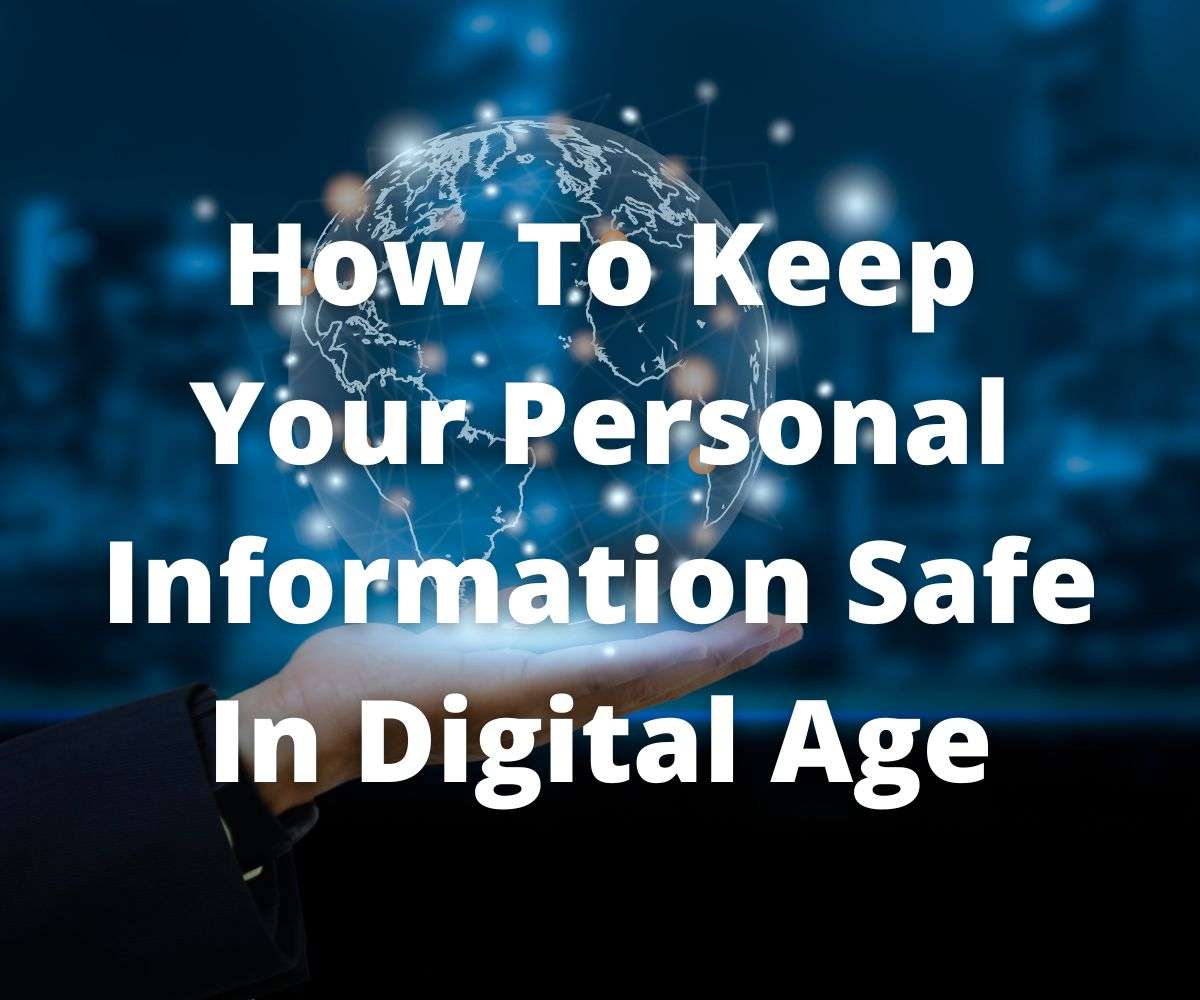how to keep your personal information safe in digital age
Description
How to Keep Your Personal Information Safe in the Digital Age
In today's digitally driven world, protecting personal information like credentials and other crucial files is more critical than ever. With cybercriminals lurking around every corner, learning to keep your data safe in the digital age is a top priority.
This comprehensive guide will share practical tips and strategies to ensure your digital footprint remains secure and your sensitive data stays out of the wrong hands.
Know the Risks: Understanding Cyber Threats
1. Phishing Attacks: Don't Take the Bait
Phishing attacks are a widespread cybersecurity threat that targets unsuspecting individuals by posing as trustworthy entities.
Cybercriminals use various methods to execute phishing attacks, including email, text messages, and social media platforms. These messages often contain a sense of urgency, attempting to pressure recipients into taking immediate action.
To avoid falling victim to phishing attacks, consider the following tips:
- -Be cautious of unsolicited messages: Treat unexpected messages cautiously, especially if they request personal or financial information.
- -Verify the sender's identity: If you receive an email from a seemingly reputable source, such as a bank or online service, check the sender's email address to ensure it matches the official domain.
- -Please don't click on suspicious links: Hover your cursor over a link to preview the URL before clicking. If the link appears to lead to an unfamiliar or unrelated website, it's best not to click on it.
- -Use anti-phishing tools: Many email providers and web browsers offer built-in features that can help detect and block phishing attempts.
2. Social Engineering: Guard Your Trust
Social engineering is a psychological manipulation technique that cybercriminals use to exploit human trust and gain unauthorized access to personal information or systems.
Social engineering attacks often involve impersonating a trusted individual or organization, then convincing the target to divulge sensitive information or perform an action that may compromise their security.
To defend against social engineering attacks, follow these guidelines:
- -Be skeptical of unsolicited requests: If someone contacts you unexpectedly, especially if they're asking for sensitive information or urging you to take immediate action, approach the situation cautiously.
- -Verify the requester's identity: If a person claims to represent a specific organization, try contacting the organization directly to confirm their identity before providing any information.
- -Educate yourself on common tactics: Familiarize yourself with the various methods cybercriminals use to deceive their targets, such as phishing, pretexting, baiting, and quid pro quo attacks.
- -Protect your personal information: Be cautious about sharing personal details, such as your date of birth, address, or social security number, as attackers can use this information to impersonate you or gain access to your accounts.
By understanding the risks and implementing the precautions above, you can significantly reduce your vulnerability to phishing and social engineering attacks, safeguarding your personal information in the digital age.
Strengthen Your Password Game
1. Create Complex Passwords: Outsmart the Hackers
Creating strong, unique passwords for your online accounts is essential to protect your personal information from hackers.
To create a complex password, consider the following guidelines:
- -Use a combination of characters: Incorporate uppercase and lowercase letters, numbers, and symbols to make your password more difficult to guess or crack.
- -Avoid easily guessable information: Steer clear of using easily identifiable details such as names, birthdates, or common words.
- -Aim for length: Longer passwords are generally more secure. Consider using a passphrase, a sequence of words or characters that is long and memorable.
- -Update passwords regularly: Changing your passwords every few months can minimize the risk of unauthorized access.
2. Utilize a Password Manager: Stay Organized and Secure
Password managers are valuable tools for managing and securely storing your passwords. The benefits of using a password manager include:
- -Generating strong passwords: Password managers can create complex, unique passwords for each of your accounts, ensuring maximum security.
- -Auto-filling login details: These tools can automatically input your login information, making it easier to access your accounts while reducing the risk of unauthorized access.
- -Syncing across devices: Most password managers allow you to sync your password database across multiple devices, so you can always access your login details.
- -Secure storage: Password managers encrypt your password database, ensuring that your passwords remain safe even if the password manager's servers are compromised.
Safeguard Your Devices: Prevent Unauthorized Access
Keep Your Software Up-to-Date: Stay Ahead of Vulnerabilities
Regularly updating your software is crucial for protecting your devices from security vulnerabilities. To keep your software up-to-date:
- -Enable automatic updates: Configure your devices, applications, and antivirus programs to update automatically, ensuring you always have the latest security patches.
- -Monitor for updates: Periodically check for updates on devices or apps that do not support automatic updates.
- -Stay informed: Follow news sources or join forums to stay knowledgeable about the latest software updates and potential vulnerabilities.
Use Two-Factor Authentication: Add an Extra Layer of Security
Two-factor authentication (2FA) is an essential security measure that can significantly enhance the security of your online accounts.
To take advantage of 2FA:
- -Enable 2FA on your accounts: Many websites and services offer 2FA as an additional security feature. Enable it wherever possible to protect your accounts from unauthorized access.
- -Use multiple verification forms: 2FA typically requires additional verification forms, such as a text message code, fingerprint, or authentication app. Choose the best method for you and provides the highest level of security.
- -Stay vigilant: Be aware of phishing attempts or social engineering attacks targeting your 2FA codes or authentication methods.
By following these guidelines and prioritizing your online security, you can effectively protect your personal information and devices in the digital age.
Exercise Caution on Social Media: Safeguard Your Digital Identity
1. Restrict Personal Information Disclosure: Maintain Your Privacy
Be vigilant about the personal details you disclose on various social media platforms.
Tweak your privacy configurations to control who can access your content, and refrain from sharing sensitive information such as your home address, contact number, or date of birth.
2. Be Wary of Friend Invitations: Steer Clear of Phony Accounts
Granting friend requests from unknown individuals or fabricated profiles might leave you vulnerable to cyber risks.
Exercise discretion when establishing connections and only accept invitations from individuals you know and have confidence in.
Remain Updated: Keep Abreast of Current Cybersecurity Developments
1. Follow Trustworthy News Outlets:
Remain Well-Informed Staying up-to-date with credible cybersecurity news providers can help you be aware of emerging threats and recommended security practices.
Sign up for newsletters or track blogs to receive consistent updates on the continuously changing landscape of cybersecurity.
2. Participate in Cybersecurity Seminars:
Acquire In-Depth Expertise Engaging in cybersecurity seminars or online workshops can enhance your comprehension of how to protect your data.
Numerous organizations provide accessible or affordable events, making it convenient to broaden your knowledge and stay ahead of potential risks.
Bottom Line:
Taking proactive steps to keep your personal information safe in the digital age is essential.
By understanding the risks, strengthening your password game, safeguarding your devices, being cautious on social media, and staying informed, you can significantly reduce the likelihood of falling victim to cyber threats.
Protecting your digital identity is an ongoing process, requiring constant vigilance and adaptation to new challenges.
By implementing these strategies and staying committed to your online safety, you can take control of your digital protection and confidently navigate the ever-evolving digital landscape.






















